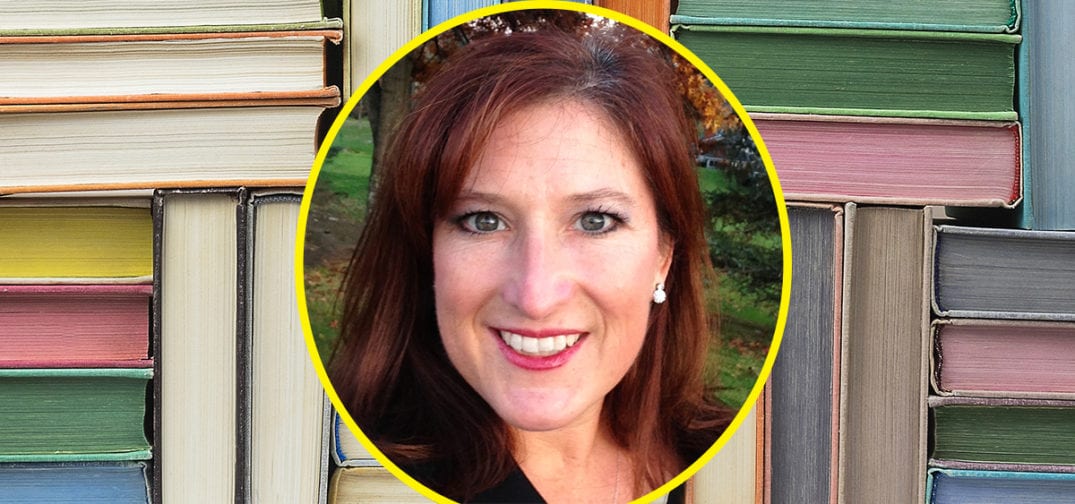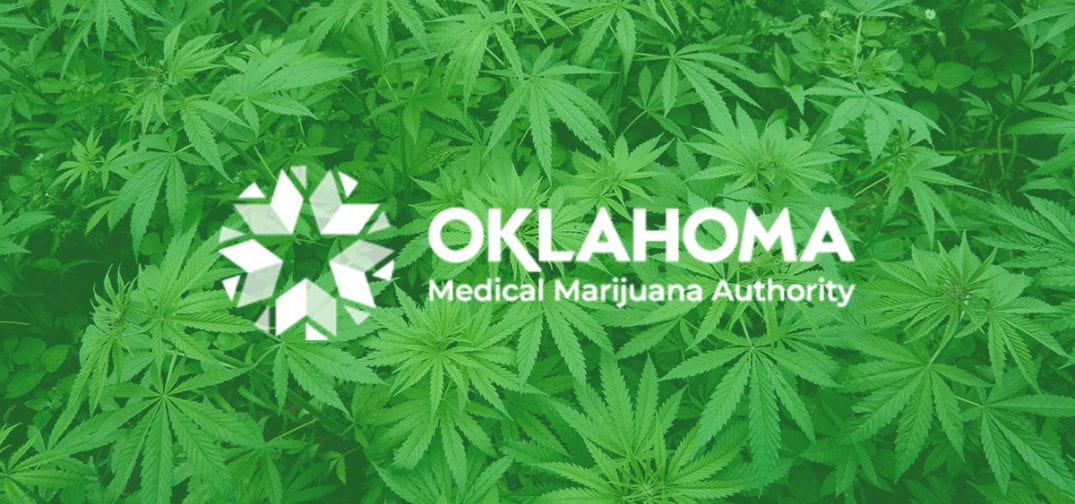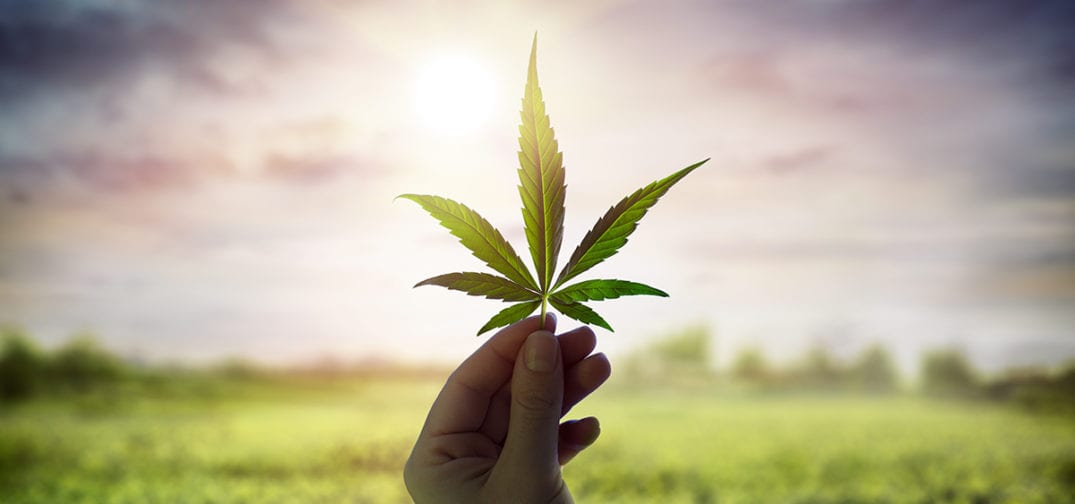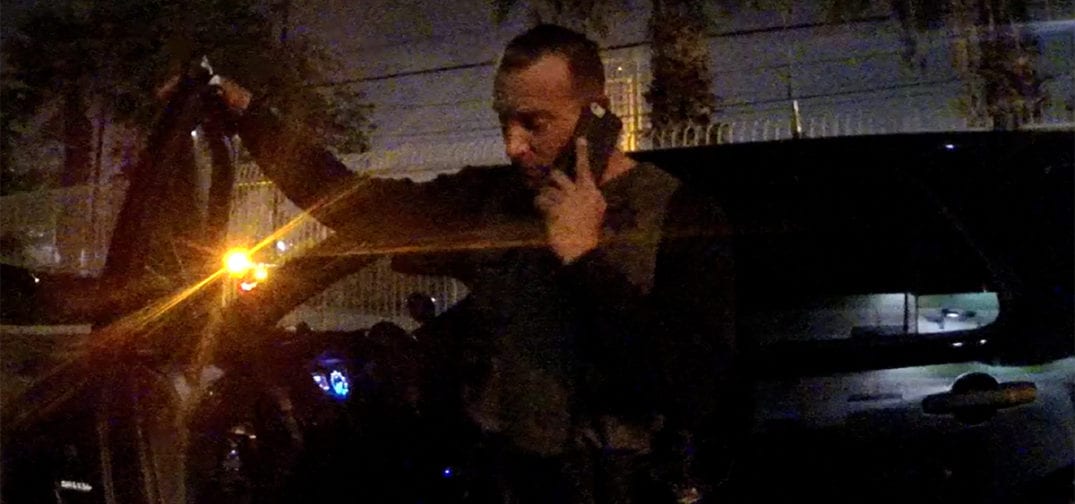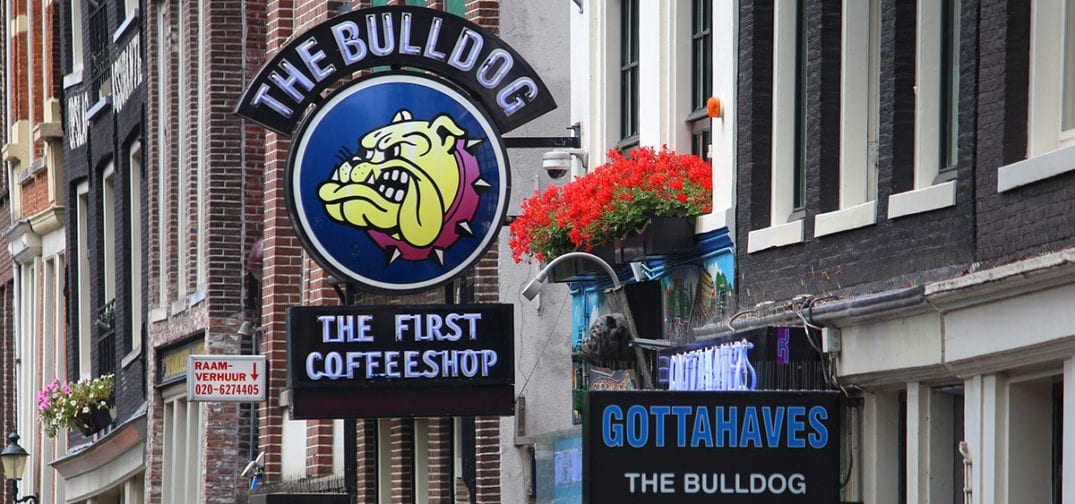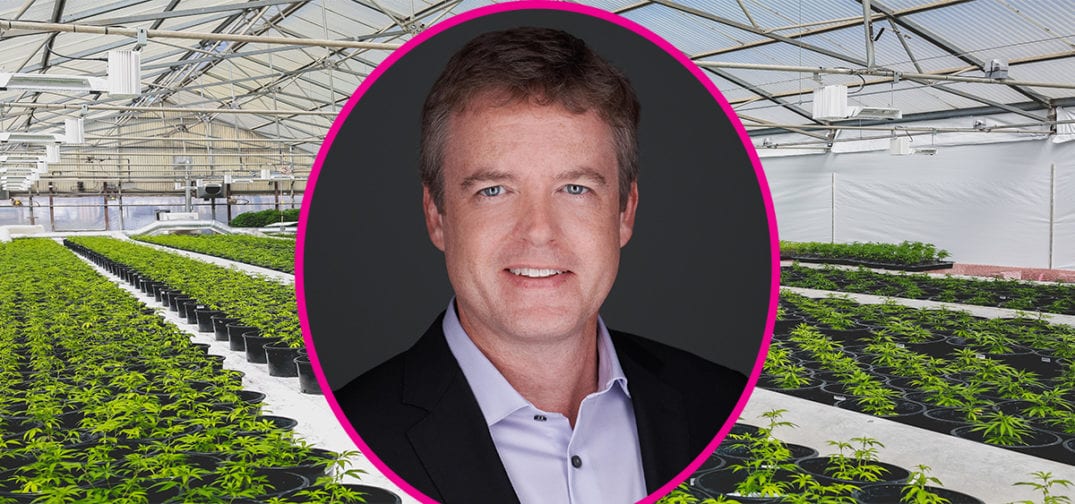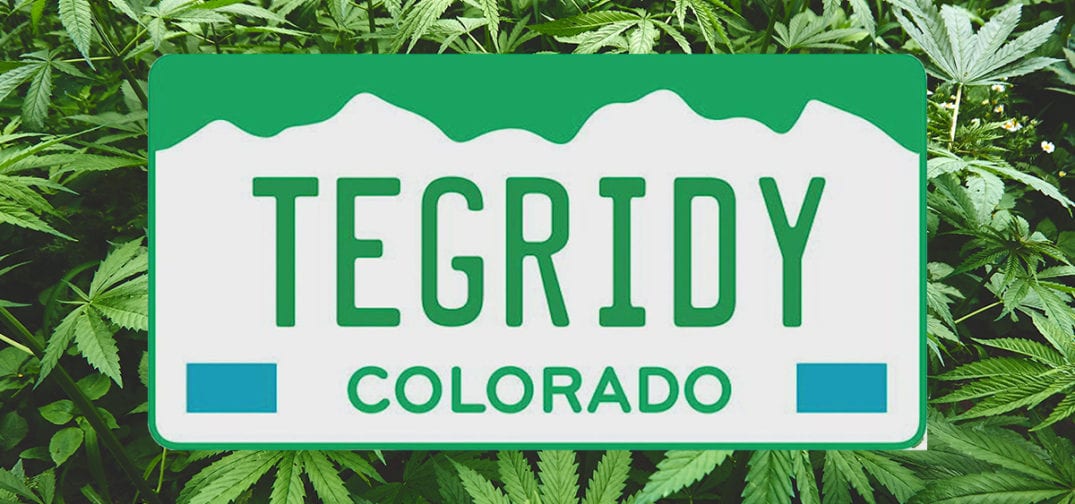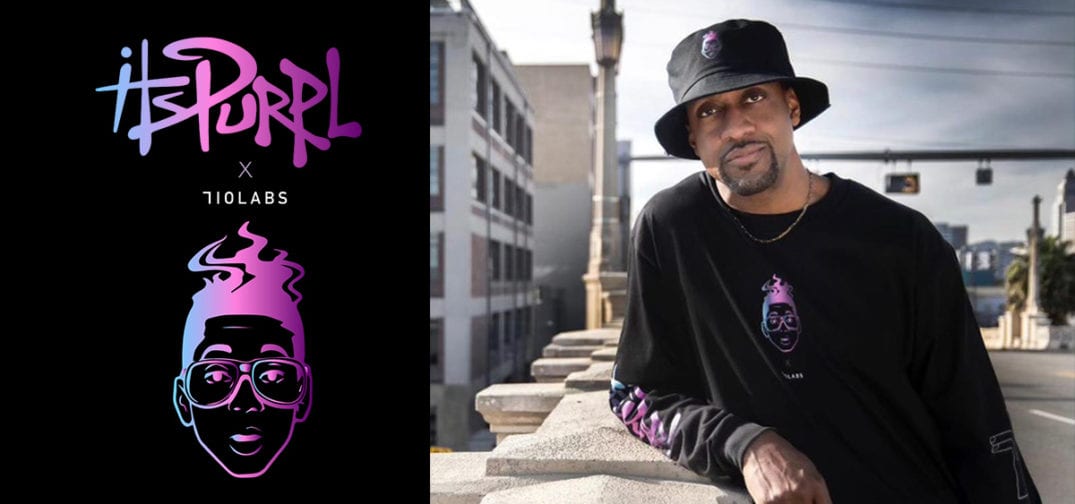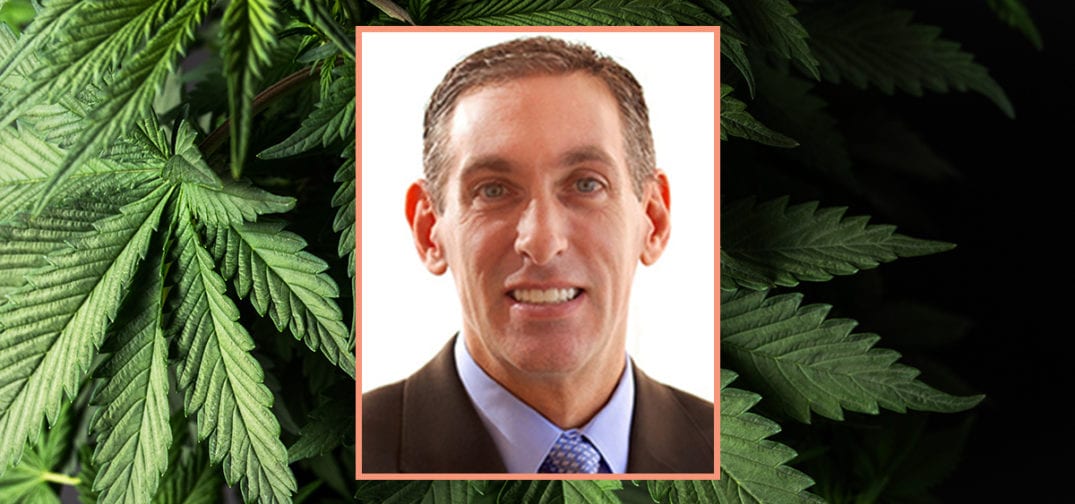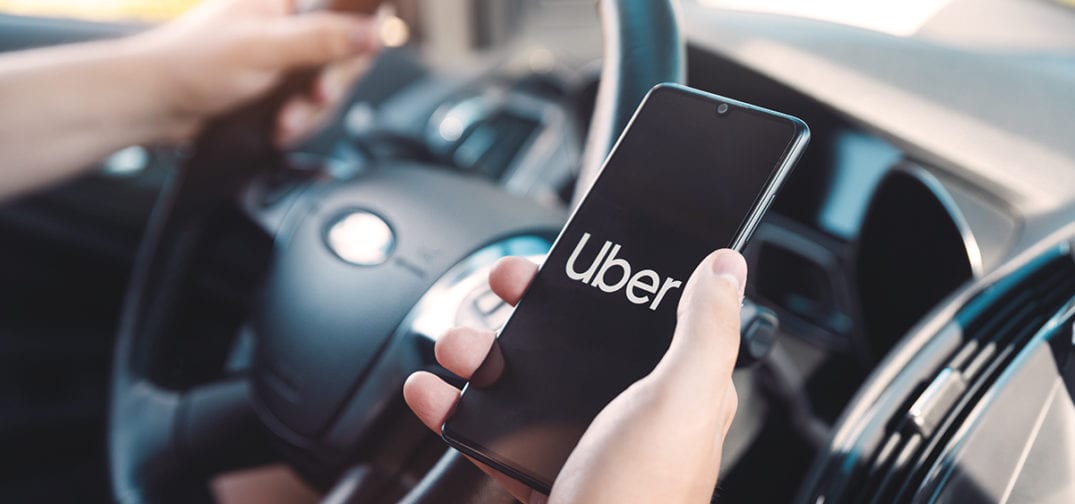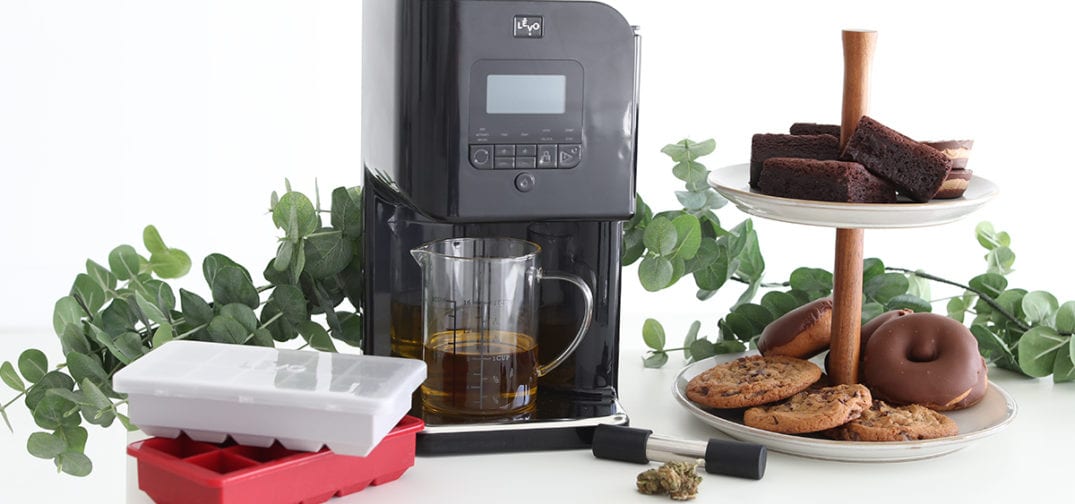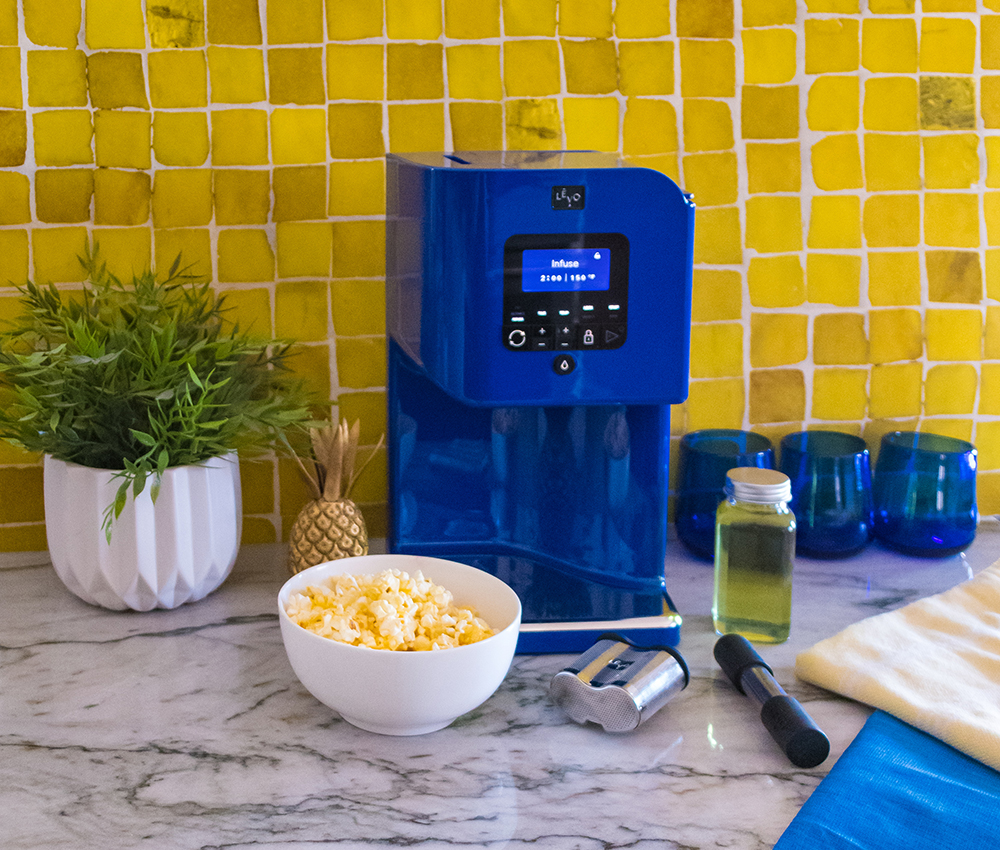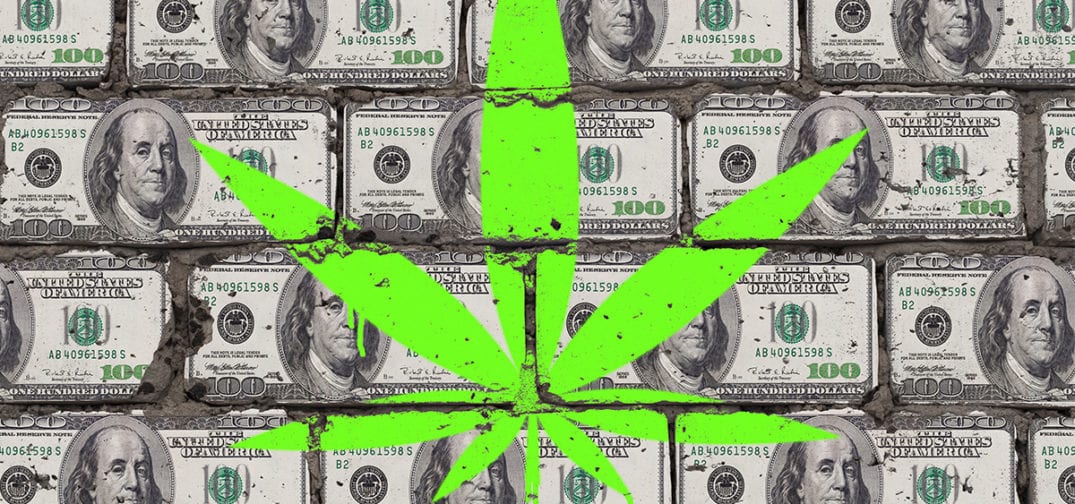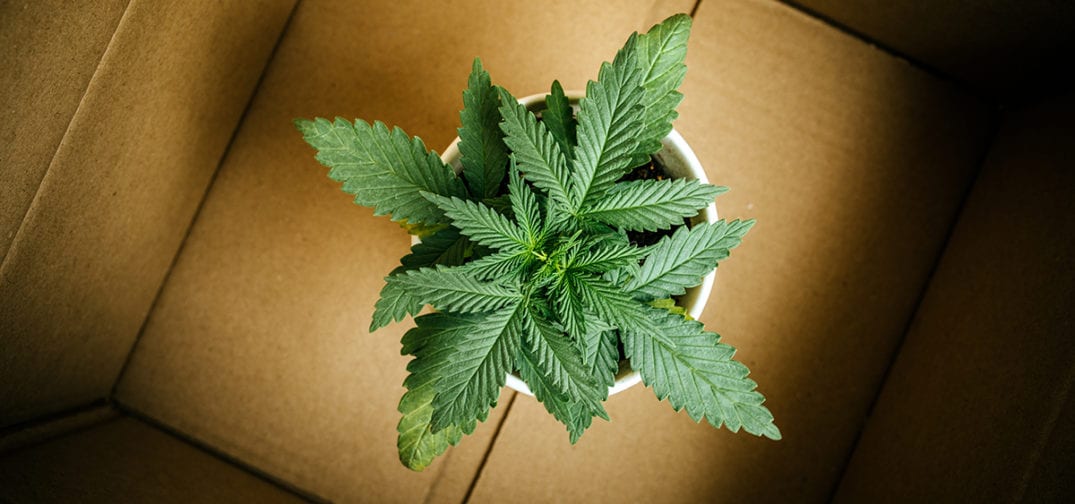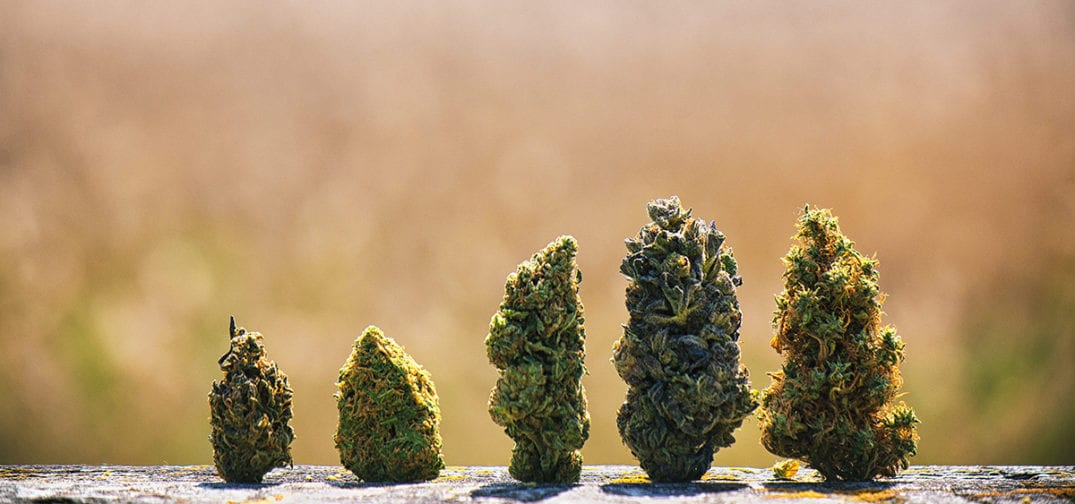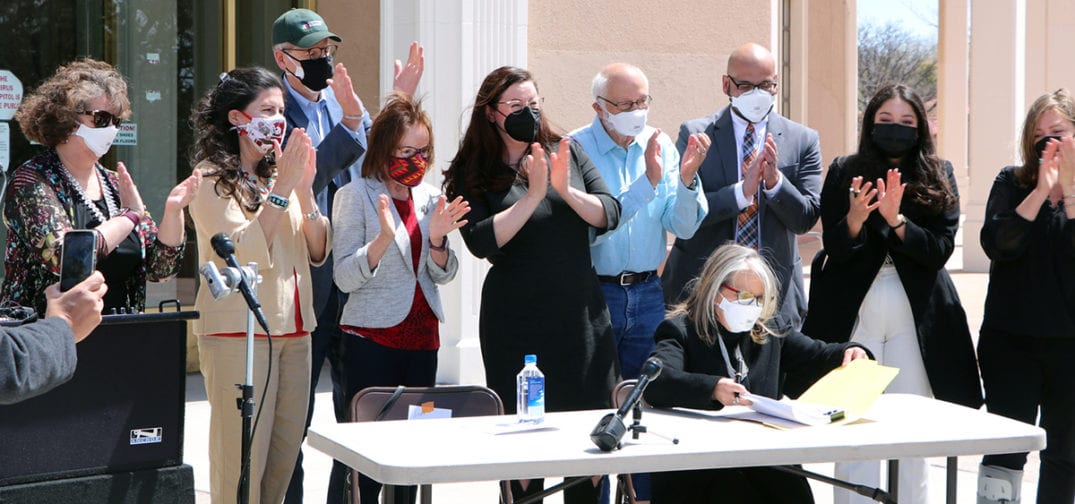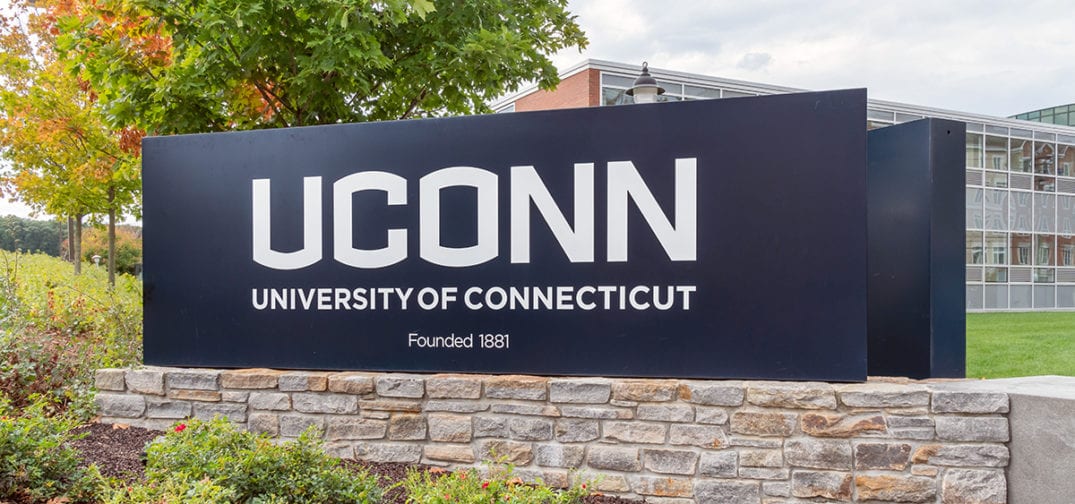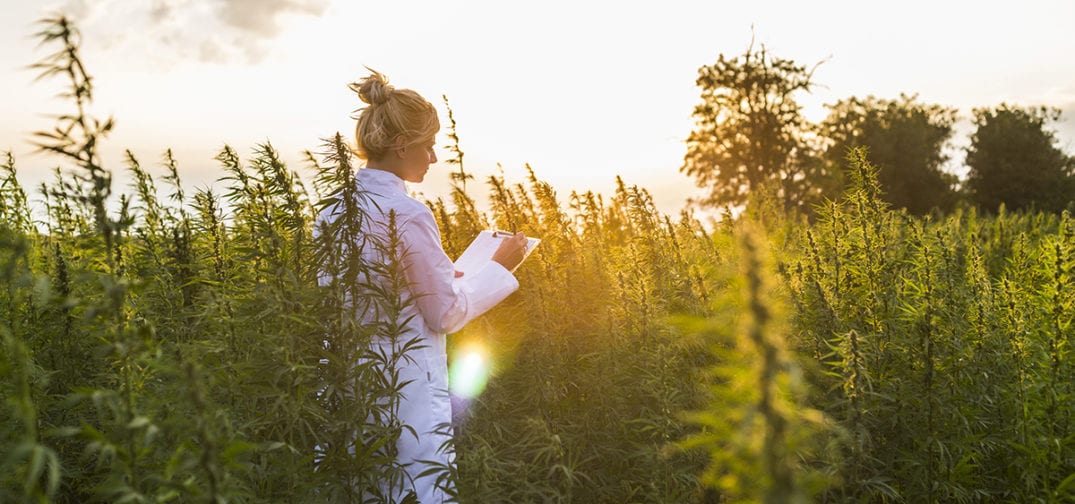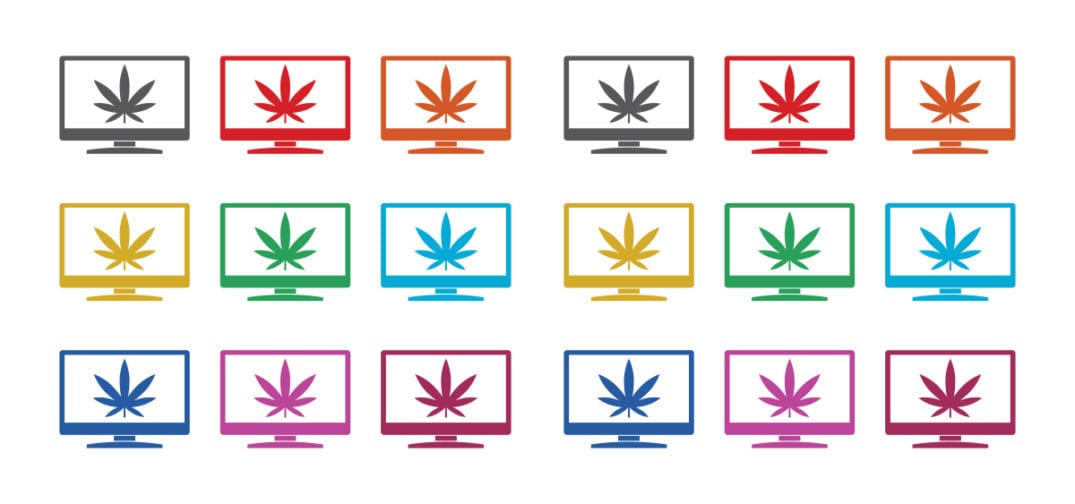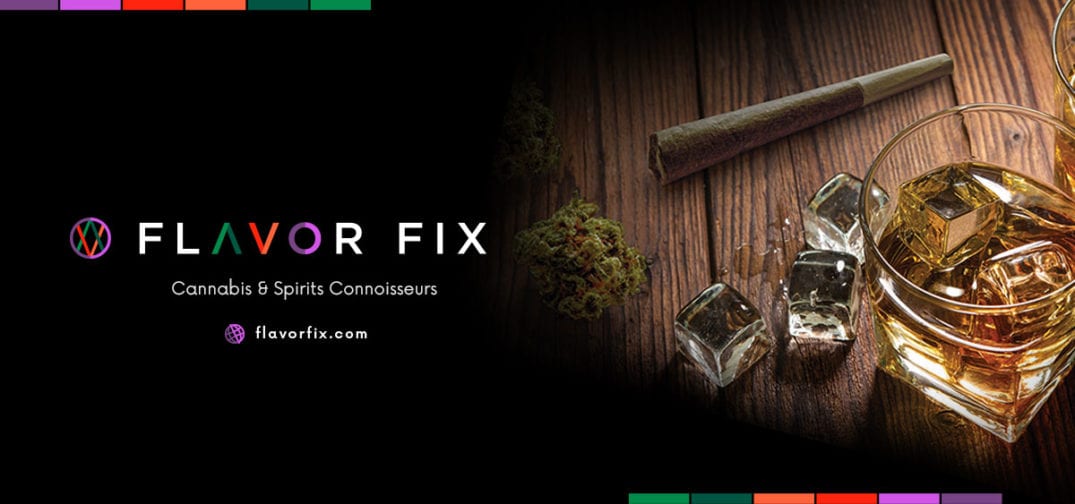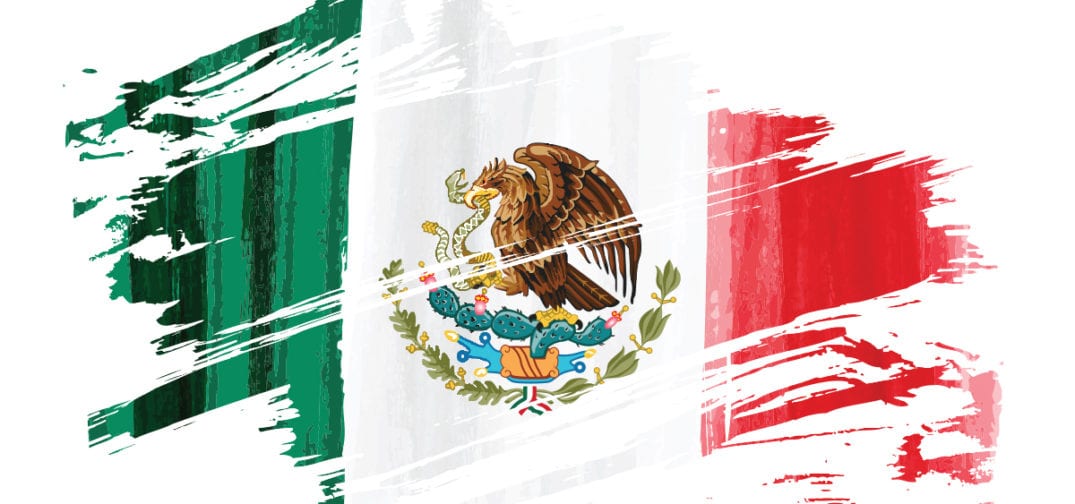Ryan Douglas is the author of the new book From Seed to Success: How to Launch a Great Cannabis Cultivation Business in Record Time, wherein he breaks down the process of starting and growing a successful cannabis cultivation business. Formerly the master grower for Tweed Inc., Ryan pivoted to cannabis industry consulting in 2016 and since then has gotten involved in scaling up the medical cannabis industry in Colombia with sights set on the international cannabis marketplace.
In this episode of the Ganjapreneur.com podcast, Ryan describes how his years of experience in the horticulture industry growing flowers had made him uniquely qualified to run an industrial cannabis grow operation, offers tips for entrepreneurs who are considering a cannabis cultivation start-up, shares his predictions for the international medical cannabis marketplace, and more!
Tune in to the interview below or through your favorite podcast-listening platform — you can also scroll down to find a full transcript of the interview.
Listen to the podcast:
Read the transcript:
Commercial: This episode of the Ganjapreneur Podcast is brought to you by Cannaplanners. Cannaplanners is on a mission to normalize the emerging cannabis industry through beautiful design and professional web and marketing solutions. Whether you’re looking to create a new cannabis brand, improve your packaging design or get your company online Cannaplanners has the perfect solution. Your website is the window into your cannabis company. Make sure that you look awesome, that your messaging is on point and that traffic converts to customers through SEO. From CBD companies to dispensaries and everything in between Cannaplanners has you covered. Visit them online today at Cannaplanners.com for a free web demo. That’s Cannaplanners.com.
Commercial: Ganjapreneur is excited to announce the launch of our new YouTube series The Fresh Cut hosted by Cara Wietstock.
Cara Wietstock: Hi, I’m Cara Wietstock, host of The Fresh Cut by Ganjapreneur. In this interview series we get straight to the source and speak with the real people working in the industry. In our first episode, I spend time with Nancy Southern whose current mission is to educate seniors on cannabinoid medicine. She lets us know how to facilitate a comfortable retail setting for older adults and provides product recommendations directly from her own experience. Catch this and all future episodes on YouTube.
TG Branfalt: Hey there, I’m your host, TG Branfalt. And thank you for listening to the Ganjapreneur.com Podcast where we try to bring you actionable information and normalize cannabis through the stories of ganjapreneurs, activists, and industry stakeholders. Today I’m joined by Ryan Douglas, he’s the former master grower for Tweed and a cannabis industry consultant. He’s also the author of From Seed to Success: How to Launch a Great Cannabis Cultivation Business in Record Time.
Before we sort of introduce Ryan and get to know a bit I do just want to say that this book is really comprehensive, really easy to read, even if you aren’t really sort of a cannabis connoisseur, if you will, I think that it sort of simplifies and demystifies, I think the process of starting a cannabis cultivation business in particular. So thank you for sending me the book. Thank you for writing the book. Ryan, how you doing this afternoon?
Ryan Douglas: I’m doing great. Thanks for having me on. It’s a pleasure to be here.
TG Branfalt: So we have a lot to talk about today. Getting through this book. I have a lot of questions about it and sort of the process there. But before we get into that, how did you end up in the cannabis space?
Ryan Douglas: So my background is actually as a traditional grower, so for 15 years before even touching cannabis on a commercial scale I was growing ornamental crops and edible crops in large greenhouses across the US. So I worked in New Mexico, Mississippi, Massachusetts, and Maine. And really, in retrospect, it was the best training, the best foundation for becoming a commercial cannabis grower because 90% of the concepts and the techniques for commercially growing flowers or vegetables directly apply to cannabis.
So for a decade and a half, I was busy kind of learning the ins and outs of commercial plant production. And as cannabis slowly became decriminalized, or at least commercial cultivation was legalized, in some states, I started to transition from flowers and vegetables to cannabis.
TG Branfalt: At what point was it that you’ve sort of looked at the sort of counterculture industry as something viable for you as somebody who is working in a very sort of, I guess, normal industry?
Ryan Douglas: Well, it’s always been a dream. I mean, I’m 44. So I’ve been consuming cannabis for probably 25 years. But I want to be open about the work that I do, I want to be able to invite my parents or my family to see what I’m doing. I want to be able to talk about it openly like we’re doing right now. So just given the status of the laws for the last few decades, it just wasn’t an option for me. So I kind of kept my nose clean, in a sense, and I only grew flowers and vegetables. But it was always the dream. And just in the last five or seven years, everything has really come together for me. So I couldn’t be happier. It’s really an excellent time to be in the cannabis space.
TG Branfalt: Congratulations, man. Not everyone gets to live their dreams. So that’s really great to hear. Tell me about your time at Tweed from 2013 to 2016, you were the master grower. And this is prior to broad legalization in Canada. So what I want to know really is what was sort of the industry like during that three year period that you were there?
Ryan Douglas: So, exciting would be the most accurate description. So I was hired by that company, before they even had a license. I was issued a work permit from the Government of Canada, specifically to come to Ontario to grow cannabis. So I crossed the border, and I joined this company before they had a license or production side or anything. And I helped them develop their cultivation portion of the license application. And then we were, I think, the seventh company to get licensed.
So from that point on, it was just designing the facility, acquiring the genetics, hiring and training the cultivation team and really helping what would soon become Canopy Growth Corporation really launch and expand. So it was probably one of the first instances where we had cannabis companies incorporating technology and equipment from traditional horticulture for the purpose of growing cannabis on a large scale. Because up until that point, given the illegality of it, you really couldn’t go out and source irrigation equipment or growing tables on a large scale, because well, it was kind of sketchy.
But this was the first time it was federally legal, it was very clear what was legal and what was not permitted. You had companies that were raising money, so they had the funds to invest in this stuff up front. And from my perspective, this was the kind of equipment and technology I’ve been using for the last 15 years. So it was a really exciting opportunity to blend traditional horticulture in really a new regulated environment for growing something that I’ve always been a fan of.
TG Branfalt: So let’s talk about… We talked about your experience in one sort of emerging industry or emerging nation, you’re sort of doing this again, in Colombia, the nation of Colombia. What are you learning about what’s going on about how they are approaching sort of medical cannabis? We don’t know… I found out that we don’t know a lot about what’s going on in sort of South America with regard to the sort of revolution that’s happening there. I mean, Mexico, Uruguay, we’re starting to see medical sort of pop up regionally. So tell me about what’s going on in Colombia.
Ryan Douglas: It’s an interesting situation. So from the business side the appeal is that Columbia offers a grower kind of a high volume, low cost opportunity to produce cannabis, extract the essence, the active ingredient, and then export it to markets around the world. Because in Colombia, the conditions are perfect for growing cannabis. So what that means is that as opposed to someplace like Canada, you’re not investing in really expensive technology to either cool the really hot days in the summer, or heat the really cold days during the winter, and you don’t need supplementary lighting, or dehumidification equipment.
So the cost of mounting a production facility in Colombia and the cost of operating is much lower. So from the business side, it’s a very exciting opportunity for them to be a global player in the cannabis industry. On the consumption side, it’s interesting, because really, cannabis is very common here. And it can be grown very inexpensively and even cannabis on the street costs about 60 cents a gram or less.
And so the challenge, I think we’ll see is when we turn it into a medical product, and we create stores where you buy it, and we create a medical system where they give you prescriptions for it. There’s a lot of costs and complication involved, where a lot of people have this stuff growing in their backyard already or they can acquire it really inexpensively and easily. And it’s been that way for decades.
So again, I think the domestic market, it’s yet to be seen how that’s going to play out. But for the majority of the growers, the big players, the goal here, the vision is to be really a dominant, large-scale producer of cannabis with the goal of exporting it to countries that don’t have domestic capacity to produce cannabis for their own consumers.
TG Branfalt: Can you just… I mean, I know that you might not be able to say exactly, but can you say exactly where those nations might be that don’t have the conditions?
Ryan Douglas: Yeah, so even… Let’s just think about the next five years globally. Without a doubt, we’re going to see more and more countries legalize cannabis consumption. Usually they do it for medicinal use initially and a couple years later it’ll become adult use or recreational use. So the minute that law is passed, the citizens of that country have the legal right to possess and consume cannabis. But when you think about licensing and preparing land and building a greenhouse and starting crops and harvesting, and you’re looking at a minimum of 18 months before you can actually sell medicinal product to the patients that now legally have a right.
So countries like Colombia, if they’re already producing at a large scale, it’s just a question of changing the shipping label on their products. So what they want to do is really meet the demand of a newly legalized market in a new country for the first couple of years until they build up their own domestic capacity and can provide for their citizens. And then once that country can meet their own capacity, inevitably, there’ll be another country that legalizes cannabis, without domestic capacity to serve it. And then it’s the next 5, 7, 10 years, I think that’s how it’s going to play out for these kind of low cost, large volume producers in Central and South America or other similar places across the globe.
TG Branfalt: It’s incredibly interesting, man. So at what point did you say “I’m going to write a book and sort of give away the stuff in my brain, the secrets.” Man, because again, it’s so comprehensive, and it’s the sort of stuff that people who follow the industry, they might read it, and really… There’s some stuff in there that they might sort of look at and say, “Hey this is new to me.” And then other people who have no experience, are just sort of interested, it might be a little more complicated to them. But I mean, ultimately, you are this wealth of knowledge. And you’re a consultant as well. So why did you decide to write a book?
Ryan Douglas: So two reasons really. The first was directly related to the COVID-imposed quarantine. So at the time, I was living in Colombia and the quarantine, the lockdown was much more strict than in the US. So people could only leave their house once a week. And the day depended on the last digit of your identification card. And so they’re enforcing it, there was a random checkpoints along the road. And there’s checkpoints before you entered the grocery store, the bank or pharmacy wherever you wanted to go.
So I was literally trapped inside my apartment for months, I couldn’t get out to service clients, I couldn’t get out period. So writing the book was one way to stay sane, it gave me something to concentrate on, something to do that I was passionate about, but I could do within the walls of my apartment.
The other reason I wrote the book was because when I go to visit potential clients, if they call me in to have a look at a crop problem, it’s very seldom due to a really specific technical growing issue, like the wrong kind of lights, or the wrong kind of fertilizer. It’s almost always due to decisions that were made early on in the planning phase of the business. So everything like selecting genetics, or hiring the right head grower or designing the facility.
And so even though they’d bring me to their production site to look at the problem, as I start the process of troubleshooting crop problems, nine out of 10 times, it would lead me back to decisions the company made before they even started growing plants. And so the goal of this book is that anybody from any industry can read this and use it as a guidebook to really follow the steps of launching a successful cultivation business, even if you don’t know anything about growing cannabis.
So the goal of writing this was really just to lay out everything I know, everything I’ve done, growing cannabis for Canopy Growth, and then a lot of what I’ve seen by working with consulting clients and just say these are… Really, the book has 10 chapters. And each chapter really tackles a fundamental part of launching a cultivation business. So those are really my two driving factors behind writing the book.
TG Branfalt: Well, I wonder how many people in this industry have experience over three nations? I mean, I think that’s increasingly rare if not unheard of, at least people that I talk to. One of the things that you write in this book, and we’re going to get into the book stuff now, is 90% of businesses overcomplicate their launch. What do you mean by overcomplicate? I mean, it’s sort of a loaded word that can mean a lot of things. So give the meat of that for me?
Ryan Douglas: Yeah, it’s interesting that the majority of work I do with clients is helping them to simplify what they’re doing, getting them to stop doing a lot of stuff, or at least try to break things up in pieces and worry about the majority of what they’re trying to do now a year down the road. So an example of one way that a lot of people overcomplicate the launch of their cultivation business is by starting with too many varieties.
So, I think, as consumers, we think that more options are better. And probably in a lot of cases, that’s true. But as a grower, very few skilled growers can handle more than five or 10 different varieties inside of a commercial plant operation, especially at a startup. Because startups in any industry aren’t perfect, and especially when you’re starting from seed, I’ve had clients in Colombia that wanted to start their operation using upwards of 50 varieties to start with.
And when you’ve got a new production facility, a new grower, a newly regulated system, everything is so new. And then you throw into that mix 50 unknown varieties that you need to grow out, research, refine, and try to position in a way that they’re conducive to growing on a commercial scale. Oftentimes, what happens is the production program implodes. And so you have companies that have raised millions of dollars, and they actually realize several crop failures before they can even sell one gram of cannabis. And so that’s probably the biggest way I’ve seen companies kind of overcomplicate the process is by wanting to start with 30 varieties, instead of just calming down and starting with five, because if you can’t successfully launch a business, starting with five varieties, you’ll never do it with 50.
TG Branfalt: One of the things that you talked about in the book is plant patents. And so that’s something that I think that we’re going to see a lot more of, as we see a sort of explosion in branding and the potential for… I don’t know, are you familiar with the patent laws in Canada? Can you patent a plant in Canada?
Ryan Douglas: So I couldn’t speak with authority on that, to be honest. I would definitely direct people to a patent attorney in terms of that.
TG Branfalt: So how do you think these patents would shape the future of the cannabis industry? I mean, you’re talking about simplifying things by having less plants. Well, in my opinion, if you’re a grower, and you want to keep drawing sort of this same sort of trademark strain, you’d want to patent that eventually.
Ryan Douglas: Right. So the idea is that this is another source of revenue. And not only are we growing cannabis to sell the dried flower, or extract the active ingredients, now we’re selling the genetics. So the appeal behind that is that if someone has a variety that offers something unique, so if we just think about THC, it’s rare to find a cannabis variety that tests higher than 30% THC. So in the event, someone breeds a plant that tests 40% THC, there’s going to be a lot of demand for that.
And if you can sell the cuttings or sell the seeds, and charge royalties, that’s another source of revenue. Another concept to think about is disease resistance. So you have more and more people wanting to grow outdoors or in greenhouses. And when you get away from indoor grows, and you get more outdoor grows, you lose control of the environment. And so things like mold can really bring a crop to its knees.
So if someone breeds a variety that is resistant to botrytis, or powdery mildew, these diseases that attack plants outdoors, that is also potentially a lucrative source of revenue by selling the rights to propagate these plants. And so this is actually how the majority of traditional horticulture works. So when I was growing flowers before, every couple years, at Christmas time, we buy red poinsettias, but you might notice that occasionally, there’s white poinsettias, there’s pink poinsettias, and there’s poinsettias that are a mix of all those colors together.
And so every year, these companies are breeding poinsettia, that is to come up with something new. And if you want to grow that poinsettia and sell it at your garden center, you have to pay a royalty fee. And there’s actually organizations that travel around the country unannounced, and they’ll go into your greenhouse, and they’ll detect if you are growing unlicensed plants that you haven’t paid the royalty rights for. And you can get in trouble. And so I mentioned I was a grower for 15 years, and I had numerous visits from this organization, they would just show up, they would come in and look around. And if I had these special varieties I needed to show proof that we were paying royalties on these or I was in big trouble.
TG Branfalt: That’s incredible. I had no idea that there was like flower police. So one of the biggest things that this trademark issue legally has sort of surfaced in the last couple of years. Infringement, we’re talking about Nerd Ropes and we’re talking about other brands that use sort of existing non-cannabis well known brands, they get sued, Gorilla Glue had to change their name to GG4. And some of these businesses are actually fraudulent. And so in the book, you actually take some time to warn about fraudulent businesses. And I mean, we see this with financial companies, we see this with it, I mean, even some businesses would go to get licenses who don’t actually have the stuff they say they have. How can would-be investors best identify potential fraud, in your opinion, having worked in three nations?
Ryan Douglas: Yeah, yeah. So one way to look at that is typically when we think about a fraudulent business, they’re either trying to acquire investment or they’re trying to sell their business. And so one of the biggest red flags is if we look at their timelines and their predicted yields. So the value of a business, part of the business is what is it producing. And so if you’re buying a business, you want something that’s operational, something that’s producing a lot, or if it’s a brand new business will produce a lot on a very short timeframe.
And so what we saw in Colombia was that a lot of groups wanted to apply for a license, and then sell it to one of the big international players. So you had a handful of companies, the licensed cannabis companies in Canada come to Columbia, and they would buy a licensee for millions and millions of dollars. And oftentimes, all they were buying was a piece of paper and then empty land. And so if you’ve ever been to any country in South America, even though the temperature is good for growing cannabis, if there’s no access to water, or there’s no electricity for miles, it is just impossible to turn that space into a functioning operational commercial grow operation.
And so that’s just one of the concepts I referred to in the book is that if you are interested in investing or buying a business, and they claim to be able to produce plants in six months and their yields are five times the industry average, if you don’t know what to expect from plant performance, you wouldn’t know that those numbers are incorrect. And so that’s why in the book, I talk about timelines in terms of production, from start to finish, I say that normally you should anticipate having product to sell within 18 months of being licensed.
But I also talk about yields, what a plant can produce per square foot or per square meter to give business owners or potential investors an idea of what they should expect from an acre or 10 acres or production. So that’s kind of what I referred to when I mentioned fraudulent businesses there. They’re just folks that are trying to make money off of the idea. And unless you really dig into what the plan is proposing, you wouldn’t know that they’re just trying to sell you a dream.
TG Branfalt: Well, I mean, most people I have on this on the show especially dispensary owners, that sort of thing. I asked them what advice do they have for entrepreneurs, and they said, “Don’t expect to get rich overnight in this industry.” So I think your advice is sort of very astute in doing that. There’s a couple of really interesting things that are in the book that I really want to talk to you about.
The first is you talk about federal legalization and you referring to the United States. And this is something that I’ve been concerned about for, I mean, as long as the legalization thing has been sort of a topic of conversation. As long as I’ve been in this industry, and even before that. Once it’s legal, that’s going to give sort of the FDA and Big Pharma the opportunity to come in and really take over and then the people who have been working as caregivers, or as sort of outlaw medical growers for decades are going to get pushed out and they’re not going to get a penny for their work. So in your estimation, how do you think federal legalization could stymie the current legal industry?
Ryan Douglas: An interesting question. First and foremost, I think that interestingly, ironically, it’s going to eliminate inefficiencies in the industry. And these inefficiencies are what creates a lot of business opportunity, from growers, to dispensary owners, to people that are providing ancillary businesses. So as an example, if you’re selling something with THC in your dispensary, that product needs to be grown inside that state because interstate transport of anything with THC is prohibited.
So if we look at my home state of Maine, those dispensaries can only sell products that were grown or derived from THC products in the state of Maine. And so just this past election, we had a handful of states that voted to legalize cannabis for medicinal adult use. And so the same thing, they’re going to establish a dispensary network. But all of that product has to be grown within those states. So every time a state legalizes cannabis, the process begins new, where they have to establish production facilities from scratch in the States.
So if we legalize on a federal level, now we look at growing where it makes sense. Just because cannabis is legal in a given state doesn’t mean that it’s economically feasible or efficient to grow it there. So I mean, there’s a reason that there’s a citrus industry in Florida, there’s no citrus industry in Maine, it just doesn’t make sense to grow or try to grow citrus in Maine. We could, we could build really sophisticated greenhouses and provide heat year round and grow lights and we could grow trees in Maine and produce oranges, but we don’t because it doesn’t make sense.
But we have to grow cannabis that way, because it’s the only way we’re allowed to do so. So when I say it eliminates inefficiencies, I think if we legalize cannabis on a federal level, we’re going to be moving production to those states where it makes sense to grow large scale production and greenhouses in places where there’s a lot of sun and warm temperatures, and then we’re going to ship it to those states, the rest of the states in the US. Because that’s how every other agricultural commodity is produced and distributed.
TG Branfalt: And so is the sort of conditions that we’re looking for, let’s say we did have this sort of federal legalization and it did sort of go… Are we looking at former tobacco country as being sort of the new cannabis capitals? Or are we looking at the coasts?
Ryan Douglas: So because humidity is a real killer for cannabis crops, I think we’re looking at someplace that’s warm, sunny and dry most of the year. So right now, that would be Southern California, Arizona, New Mexico. I think that’s going to turn into a really big cannabis growing region if cannabis becomes legal on a federal level.
TG Branfalt: So the other thing that I want to sort of ask you as being from Maine, was there any surprise that recently cannabis, both medical and recreational took over as the state’s number one crop? This is true.
Ryan Douglas: Yeah, it is. It’s absolutely true. So I guess if you’re part of the cannabis culture, it wouldn’t be a surprise. But if you don’t know anything about it, then you still think that lobster or lumber or potatoes or blueberries are our number one export. So I’ll tell you what did surprise me is that 75% of the medical cannabis industry is supplied by caregivers.
So in my book, I write simply from a business person’s perspective, that not every legal state is ideal for establishing a commercial cultivation business. Because for anyone listening that doesn’t know caregivers, basically, once you receive a medical marijuana certification, you can either purchase it from a dispensary, grow it yourself, or you can have someone else grow it for you. And that person is called the caregiver.
And so what we didn’t know until these reports came out in the news was that 75% of the cannabis being sold in the state wasn’t done by those big dispensaries, the big companies in the state. They were done by individuals, individual caregivers. And I mean, from a business perspective, I was launching a commercial cultivation site, I would look elsewhere. But from a cannabis aficionado, I think it’s great. I mean, it’s power to the people, fascinating.
TG Branfalt: No, I’m an East Coast kid. And I love Maine and I love Mainers. This is a true story. I do love lobster. Also a very true story. One of the other really interesting things that you discuss in the book, albeit pretty briefly, is how you envision the use of drones in cannabis cultivation. Could you please just sort of tell me more about that. Because that, to me is one of the most forward-thinking parts of this book is looking at this technology that we have, that is used, and that it’s going to be sort of an integral part of the industry, in your estimation.
Ryan Douglas: Yeah, absolutely. So half of this, it’s a no brainer, because it’s already part of traditional agriculture elsewhere. So when we’re growing outdoors, farmers can use drones to do everything from analyze the soil prior to planting, to really analyzing their crop once it’s growing. They attach different kinds of cameras to the drone, and depending on the reports, or the colors of the video, they can determine if there’s a insect or disease infestation or if the crop is under fed. So they can make decisions and really steer their crop before it results in a crop failure or any kind of expensive damage.
TG Branfalt: You can see insect infestations with these.
Ryan Douglas: Right, so depending on the kind of camera they use, the color is going to indicate that there’s damage to the plant. And so they’re also using them for plant count, because sometimes licenses are tied to canopy size or plant count. And so they can fly over a crop and get a very accurate count of how many plants are growing outdoors. So from that perspective, it’s kind of a no brainer, because we just look to a sister industry, which is traditional horticulture and realize that as we grow more and more crops outdoors, that kind of technology is going to help.
Now what really gets me excited as we look at new applications of drones. And so I have a contact in the Netherlands, a company that is developing this drone as a form of pest control. So it’s organic pest control, because they’re eliminating plant damaging insects without the use of any pesticides. And so what they do is they use these mini drones, the drones are about the size of the palm of your hand, and they sit on a base station in the greenhouse.
And what they do is detect the movement in the air of certain plant damaging insects. And once the movement is detected, they’re dispatched from these base stations, and they kill them by causing a collision. They suck the insect through the propeller and it kills it and then it returns to the base station until it detects another insect.
TG Branfalt: Seriously.
Ryan Douglas: So what they’re doing in the Netherlands is they’re really big cut flower growers up there. And so they have a problem with moths. So moths don’t eat plants, but their offspring, caterpillars do. And they attacked cannabis as well. So once the damage is… Once you realize there’s a caterpillar there, the damage is already done. So this is one instance where this is a technology that can directly be applied to cannabis. And it really helps the grower control pest populations, grow a more efficient crop, and they’re using zero pest control products to do so.
TG Branfalt: That is absolutely fascinating.
Ryan Douglas: Yeah.
TG Branfalt: So I want to ask you the book is full of advice. As we’ve been talking about, what do you think is your key piece of advice for expanding a cannabis business? Cannabis cultivation business.
Ryan Douglas: So expanding a business. Great. So that’s a, that’s a big question now, because you have a lot of states that are going from recreational to adult use. And so they need to rapidly expand to meet the demand that exists on day one. And so what we want to do is, actually, it’s the same advice I would give a startup, which is to avoid overcomplicating. So if we’re expanding a business, we just want to duplicate what we’re already doing successfully. So we want to use the same varieties, the same growing equipment and the same protocols.
So what we want to avoid is saying, well, we’re going to expand, so we’re going to switch from growing organically to some really high tech hydroponic. Or we’re going to switch from HID lights to LED lights, or we create such a foreign growing environment, that it’s difficult to expand and increase what we’re already doing rapidly. So my advice to expand a cultivation business rapidly is the same as to launch a cultivation business rapidly, which is try to simplify the process.
TG Branfalt: I think it’s really, really great advice. I think that it’s not something that most people would sort of pivot to. To go back to the beginning when you’re trying to sort of write a next chapter. But most of us don’t write books. I think the most controversial… I think you have one controversial thing in this book, or that I found controversial. And it’s not really controversial to me, but you recommend to, quote, “Leave CBD alone.” And I think a lot of people would sort of have a knee jerk reaction to that, people in the industry, in the CBD industry, or even a lot of consumers who some still have a demonized sort of opinion on THC or high THC products. Anyway, so why do you make that recommendation to leave CBD alone.
Ryan Douglas: So the problem is you’ve got more and more in the US, hemp cultivations. And so they’re growing hemp for the biomass, which is the dried flower, from which they can extract the CBD. And so what you have is each year, you have more and more states that are converting more and more acreage to hemp production for CBD biomass. And as a result, you are seeing prices begin to lower. Now, unlike THC, CBD can easily be exported and imported to the US. So you don’t only have pressure inside of the US. But you’ll have increasing pressure from places like Colombia, that can grow the plant super cheap, they extract the isolate, and then they import that into the US.
So when you go into a business, you really don’t want to go into something that’s really a commodity business where you’re already seeing a lot of price pressure. So what I recommend, if someone comes to me that wants to grow hemp, I would instead point people to the direction of growing hemp for fiber or seed grain production, because that’s a relatively untapped market. And so I think it’s realistic that over the next coming year, certainly within the next decade, we’re going to see hemp fiber replace cotton, for example.
And there’s thousands of different uses of hemp for construction materials and paints and all of that. So I think that’s where the future of hemp production lies not in the production of CBD per se, because there’s just so much competition, other countries can produce it much cheaper. And there’s no barriers to importing or exporting the product. So it’s a really tough business to get into. I would much rather get into a business where there’s fewer players, a lot of demand. And when you’re first to market or you’re a pioneer that usually bodes well in terms of business for entrepreneurs.
TG Branfalt: Let me ask you what still excites you about this industry? Because I mean, obviously you wrote a whole book, you’re very passionate. It seems like you’ve almost done it all. I mean, what still gets you out of bed every day to still do this?
Ryan Douglas: In one word, the future. So even though the cannabis plant likely won’t change very much, how we cultivate it will change. So as responsible growers, we need to anticipate that we’re going to come under increased pressure in the future, to really minimize our carbon footprint. So that means that we need to be able to grow cannabis using less electricity, using less water and less pest control products. So it’s kind of an inconvenient truth when you think of on the one hand, it’s great that more and more states and countries are legalizing cannabis cultivation.
But on the other hand, we don’t want our legacy as an industry to be that we’ve created this massive energy consuming thing. So what gets me excited is thinking about how we can grow cannabis in the future using zero electricity, or generating our own water, or doing it completely organic. And so there’s still a lot to do there, there’s still a lot to learn and a lot to trial. And that’s really what gets me excited about the industry is thinking about the future and how we can do it better.
TG Branfalt: But I mean, the whole looking into the future… Because one of the things that’s always concerned me since I started covering this industry was the energy usage. It’s not something that gets really talked about, there’s not a whole lot of people who sort of study it or keep tabs on it. So I look forward to the day that we go to a more carbon-neutral way to grow cannabis that works. Because the weed that I grew in my backyard over the summer was not very good. But I didn’t use any water. Because I live in a rain forest.
Anyway, what one piece of advice would you have for cultivation entrepreneurs specifically. I mean, they can read your book, they can get your advice on how to launch a great cannabis cultivation business in record time. But what’s something that they may not be able to find in the book that just comes from the brain of Ryan Douglas?
Ryan Douglas: Well, it is in the book and it warrants repeating. And that is because this is a cultivation business, you make money from growing cannabis. So probably the one most important decision you can make is to hire the best grower you can afford. So I tell clients, you really want to look for someone that has 10 years of experience in commercial plant production, not necessarily cannabis. It can be flowers, or vegetables or herbs.
But if you hire someone that knows a lot about cannabis, or is excited about cannabis, but doesn’t know how to manage a facility or production team, or establish and maintain a production schedule, that company learns at the same pace as the grower. And the learning curve is expensive, and the company pays for it. So since we’re going into a cultivation business, you really need to find an experienced grower and hire the best one that you can afford.
TG Branfalt: I mean, and you do flesh out a lot of this stuff in the book. You talk about where to find these people, how much they should be paid, which I was actually a little bit surprised at the figures that are in the book. And again I don’t recommend things on this show. It’s just not sort of what I do. But as far as the several cannabis books that I have read, that I have reviewed that are not children’s books, this was really a welcome sort of addition to my bookshelf.
Because, while I don’t have any intention on starting a cannabis business. I think that it helps sort of my own understanding of what that takes. Because as I said, the only cannabis plants I’ve ever grown, the only plants I’ve ever grown were in my backyard, and they came out like trash. I mean, it was bad. So it can’t help me cultivate in my backyard. But I really appreciate your time coming on the show talking to me about this book. I hope that you are allowed to leave your Colombian apartment, but also happy that it gave us this book. So thank you again for coming on the show. Where can people find out more about you and where to potentially purchase this book.
Ryan Douglas: So if you’d like to find out more about me or contact me directly, you can go to my website, it’s DouglasCultivation.com. In the next few weeks I’ll have a page where you can purchase the book as well. But for right now, it’s only available on Amazon. So that’s the paperback version and the e-book as well.
TG Branfalt: Brilliant, brilliant. That’s Ryan Douglas, he’s a former master grower for Tweed. He’s a cannabis industry consultant and he’s the author of From Seed to Success: How to Launch a Great Cannabis Cultivation Business in record time. Ryan thanks again for coming on the show. And I look forward to seeing what you end up doing in the space because I doubt this will be the last to hear of you.
Ryan Douglas: Oh, that’s great. No thanks for having me on. It’s been a real pleasure speaking with you.
TG Branfalt: You can find more episodes of the Ganjapreneur.com Podcast in the podcast section of Ganjapreneur.com, on Spotify and in the Apple iTunes Store. On the Ganjapreneur.com website you will find the latest cannabis news and cannabis jobs updated daily along with transcripts of this podcast. You can also download the Ganjapreneur.com app in iTunes and Google Play. This episode was engineered by Trim Media House, I’ve been your host TG Branfalt.

